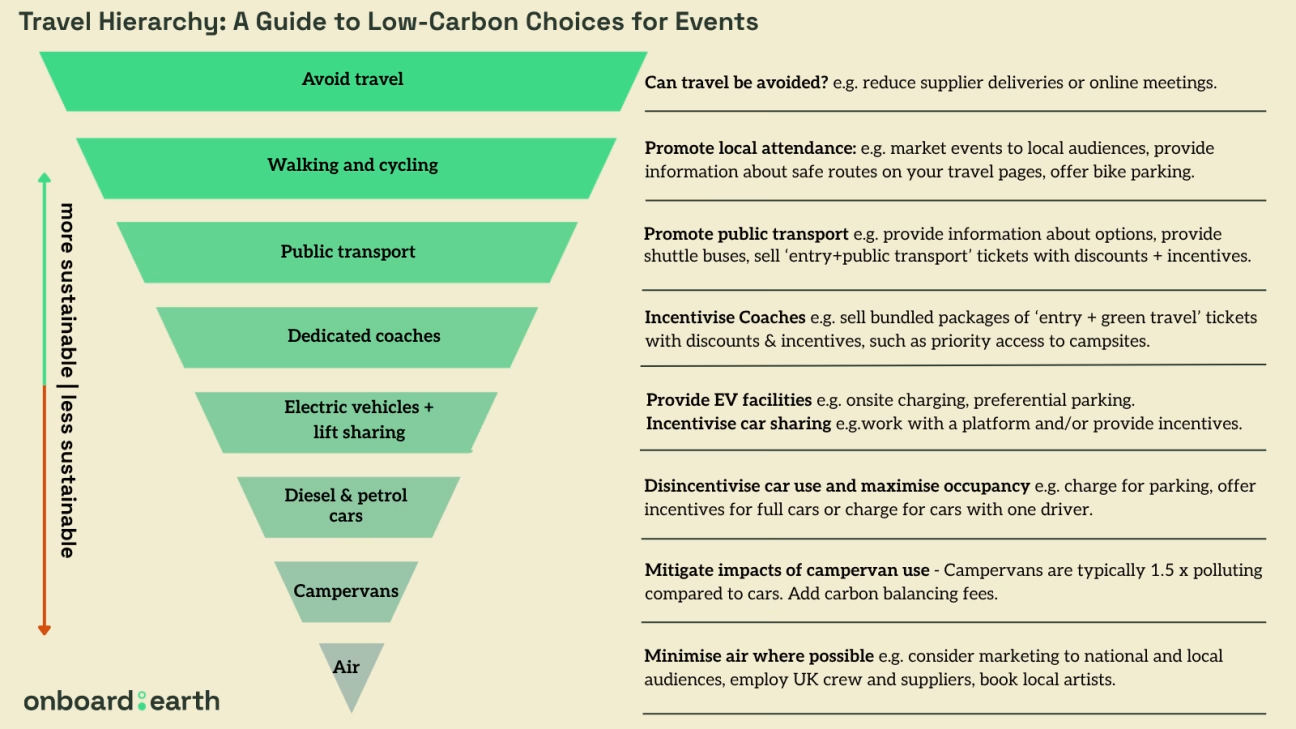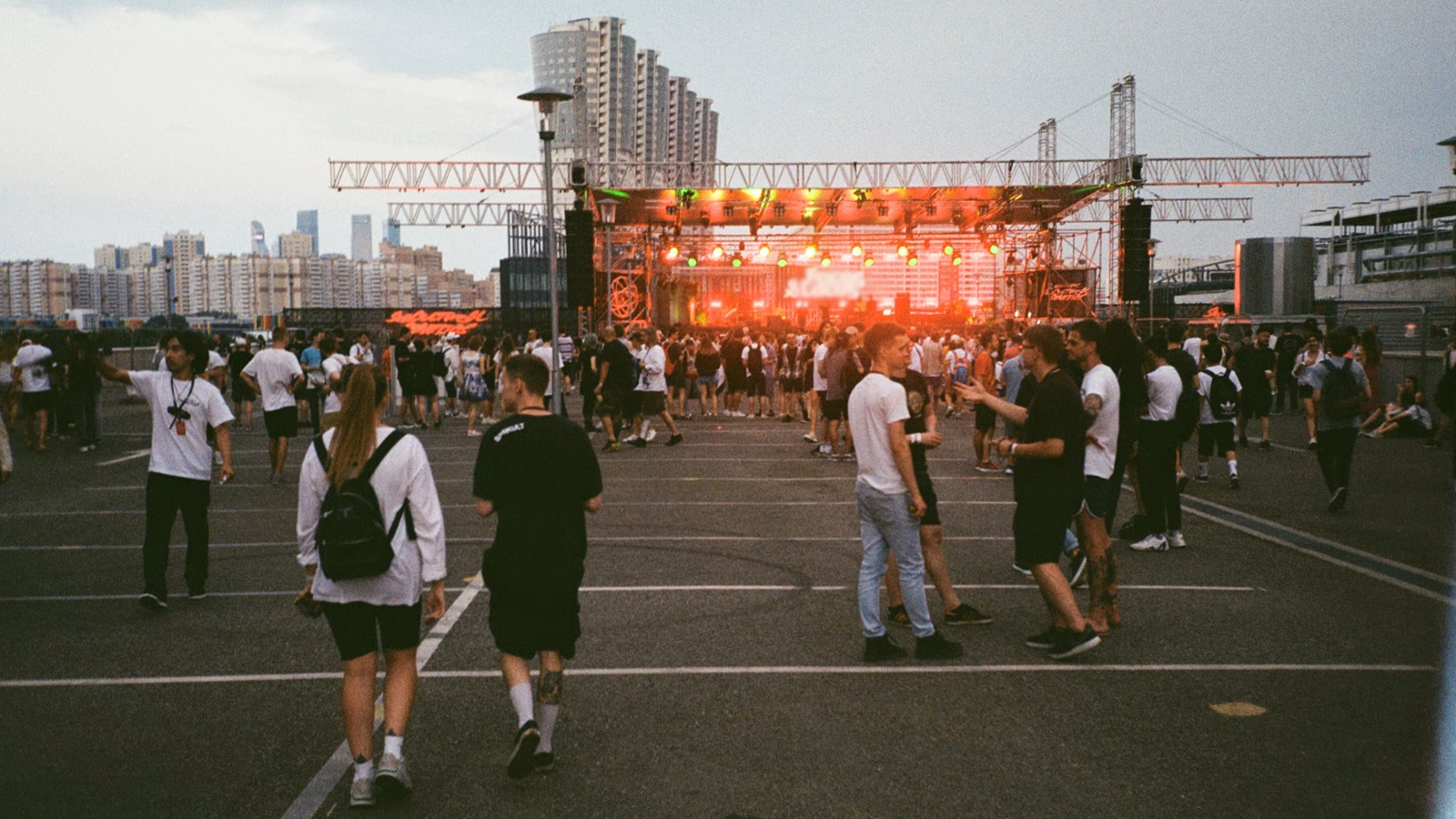Last month, Vision for Sustainable Events updated their Green Events Code of Practice (GECoP) to help the UK live events industry drive bold sector commitments and targets by offering clear guidance to event organisers and the supply chain on minimum standards for best practice.
The first national edition of GECoP, launched in 2022, provided a robust, nationally consistent framework for local authorities to assess event sustainability. The revised code reflects current best practices and aligns with national policy, aiming to help the UK live events sector achieve a 50% reduction in emissions by 2030. Crucially, it also emphasises the industry’s role as a driver of wider societal change. GECoP covers eight key areas: Positive Influence, Governance, Energy, Travel and Transportation, Food & Drink, Materials & Waste, Water, and Biodiversity & Ecological Management.
As industry experts in reducing the environmental impact of event travel, onboard:earth was commissioned to create a Sustainable Travel Hierarchy for the updated GECoP. This mirrors the existing Waste and Energy Hierarchy frameworks already within the Code.
The hierarchy, shown below, provides easily digestible advice for reducing travel carbon emissions at events. While it focuses on audience travel, it can be applied to anyone travelling to events, including artists, crew, and suppliers.

The hierarchy aims to give everyone in the events industry an accessible starting point for taking action. When it comes to climate change, time is of the essence. By using these steps, events can act now alongside getting plans in place to measure emissions and the impact of these steps in reductions – and onboard:earth has free tools and advice to help with measuring carbon emissions too. We’re confident in this approach because the hierarchy is built on tried-and-tested steps that are proven to reduce travel carbon, based on over 10 years of tackling travel at events and working with over 160 organisations.
Take practical action through your communications, ticketing, site layout, and crew and artist contracts.
Dive in and get started! Here are the steps:
- Avoid travel: Can travel be avoided? E.g., reduce supplier deliveries or switch to online meetings.
- Walking and cycling: Promote local attendance. E.g., market events to local audiences, provide information about safe routes on your travel pages, offer bike parking.
- Public transport: Promote public transport. E.g., provide information about options, provide shuttle buses, sell ‘entry + public transport’ tickets with discounts and incentives.
- Dedicated coaches: Incentivise coaches. E.g., sell bundled packages of ‘entry + green travel’ tickets with discounts and incentives, such as priority access to campsites.
- Electric vehicles + lift sharing: Provide EV facilities and incentivise car sharing. E.g., offer onsite charging and preferential parking; work with a platform and/or provide incentives for sharing.
- Diesel & petrol cars + Lift sharing: Disincentivise car use and maximise occupancy. E.g., charge for parking, offer incentives for full cars or charge extra for cars with one driver.
- Campervans: Mitigate the impacts of campervan use. Campervans are typically 1.5× more polluting than cars. Consider adding carbon balancing fees.
- Air: Minimise air travel where possible. E.g., consider marketing to national and local audiences, employ UK crew and suppliers, book local artists.
You can also consult the extra GECoP advice on travel and transport, which includes details on how to work with suppliers and embed travel policy into your strategy. You can read the updated code HERE>>
If you need event-specific advice for travel carbon-reducing initiatives, or to find out how you can start engaging your audience in donating to planet-protecting restoration projects at no cost to you, then get in touch at hello@onboard.earth.

